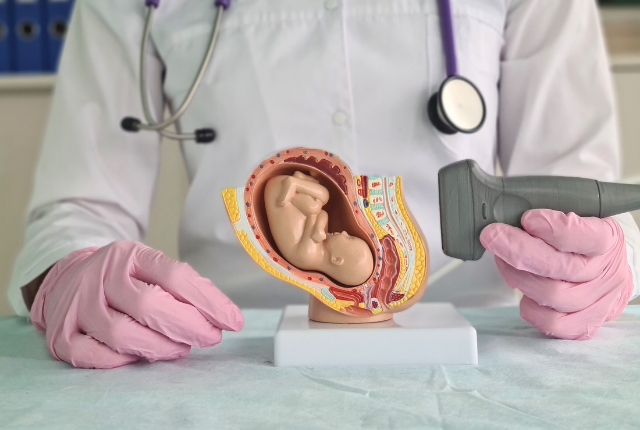Understanding the Egg Retrieval Process: Insights and Expectations
In the delicate journey of building a family, oocyte retrieval, commonly known as the egg retrieval process, emerges as a crucial aspect for individuals and couples considering assisted reproduction. This intricate procedure, often a foundation of fertility treatments like in vitro fertilization (IVF), involves the meticulous extraction of mature eggs from the ovaries. In this comprehensive blog, we will demystify the intricacies of the egg retrieval process, offering insights, setting realistic expectations, and exploring the concept of egg freezing which is a significant aspect of reproductive choices.
The Essence of the Egg Retrieval Process
The egg retrieval process is a crucial aspect of various fertility treatments, including in vitro fertilization (IVF), which is a primary option for both surrogate and intended parents. Let’s take a look at the essential aspects of this process:
- Ovarian Stimulation and Fertility Medications
Initiating the journey, ovarian stimulation is set in motion with fertility medications, prominently featuring follicle-stimulating hormone (FSH). The objective is to stimulate the ovaries to develop multiple eggs, laying the groundwork for a successful IVF cycle.
- Monitoring Ovarian Response
This phase involves close monitoring of the woman’s ovarian response through meticulous ultrasounds and blood tests. The goal is to ensure that the eggs reach optimal maturity. A strategic trigger shot of Human Chorionic Gonadotropin (hCG) follows, inducing final maturation and setting the stage for the actual egg retrieval.
- The Minimally Invasive Retrieval Procedure
The process of getting ready ends with the methodical application of the egg retrieval process. A small needle is gently inserted through the vaginal wall to reach the ovaries and aspirate mature follicles carrying the eggs during this minimally invasive procedure, which is done under anesthesia. The eggs are then given to the embryologist to be fertilized with sperm, which is the first stage in producing embryos that will be transferred in the future.
Insights into the Egg Retrieval Process
Delving deeper into the egg retrieval process, it becomes evident that several delicate intricacies contribute to its success. These aspects are as follows:
- Ovum Pick-Up (OPU)
The physical act of collecting eggs from the ovaries is termed Ovum Pick-Up (OPU). This step is indispensable, ensuring the availability of viable eggs for fertilization and the subsequent stages of the assisted reproductive journey.
- Fertility Medications and Individual Responses
The role of fertility medications in stimulating egg production cannot be overstated. However, it’s imperative to recognize the inherent variability in individual responses to these medications. Close monitoring becomes the linchpin, allowing for the modification of dosages to achieve optimal results.
- Intracytoplasmic Sperm Injection (ICSI)
In certain cases, the egg retrieval process may benefit from Intracytoplasmic Sperm Injection (ICSI). This technique involves directly injecting a single sperm into an egg, significantly enhancing the prospects of successful fertilization. ICSI becomes particularly valuable in scenarios of male infertility or when previous fertilization attempts have fallen short.
- Egg Freezing: Preserving Reproductive Potential
Egg freezing is a term that is closely related to the egg retrieval process. This empowering choice allows women to preserve their eggs for future use, providing an option for those not ready for parenthood but keen on safeguarding their reproductive potential. Cryopreserving the eggs enables flexibility in family planning, extending the viability of these vital reproductive components.
Expectations and Emotional Considerations
Embarking on the egg retrieval process is not solely a clinical journey; it’s a profound emotional experience. Recognizing and addressing the emotional aspects is integral to a holistic approach to fertility treatments.
- Managing Expectations
The spectrum of emotions individuals and couples experience during fertility treatments is vast – from hope and anticipation to anxiety and stress. Managing expectations becomes a foundational and essential aspect of this journey. While advancements in reproductive medicine have significantly improved success rates, the complexity of fertility treatments necessitates a realistic outlook. This perspective aids in coping with the emotional peaks and valleys, fostering resilience, and maintaining a positive mindset.
- Physical and Emotional Changes with Fertility Medications
The use of fertility medications can aid in both physical and emotional changes. Open communication with healthcare providers and robust support networks prove invaluable in navigating these changes. A supportive environment helps individuals traverse this phase with confidence and understanding.
- Legal and Ethical Considerations
In the broader scope of fertility treatments, including the egg retrieval process and egg freezing, legal and ethical considerations demand attention. Understanding the intricacies of parentage, consent forms, and agreements is essential for all parties involved, providing a robust foundation for the journey ahead.
Conclusion
Proper knowledge becomes essential while embracing the assisted reproduction journey. Understanding the egg retrieval process involves delving into its medical intricacies while concurrently managing expectations. By considering the subtleties of the egg retrieval process including ovarian stimulation, Ovum Pick-Up, and techniques like ICSI, individuals can make informed decisions about their fertility journey. The inclusion of egg freezing emerges as a pivotal choice, empowering individuals to take control of their reproductive futures. Throughout the process, emotional considerations and realistic expectations play a pivotal role in fostering a positive and supportive environment. With comprehensive knowledge of the egg retrieval process and associated procedures, individuals and couples can embark on this transformative and fulfilling path with confidence and hope.







